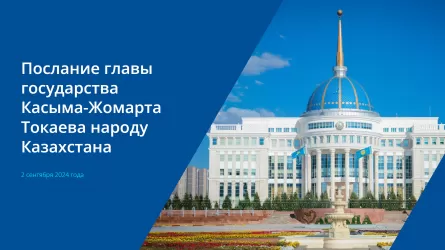The Astana Times - Kazakhstan is opening the Silkroad Innovation Hub representative office on Sept. 15 to support and promote startups from Central Asian and Turkic states. The announcement was made by Bagdat Mussin, the Kazakh Minister of Digital Development, Innovation, and Aerospace Industry, during a Sept. 13 government meeting chaired by Kazakh Prime Minister Alikhan Smailov, reported the Prime Minister’s press service.
The country will also implement the Digital Nomad visa project to attract IT specialists.
Mussin elaborated on the state’s initiatives to develop an innovation ecosystem in Kazakhstan, including measures to improve the quality of human capital, create IT infrastructure and venture funds, attract foreign technology companies, and create favorable conditions for local startups.
In recent years, there has been a rise in IT students. Modern IT schools complement the personnel base necessary to create an innovative economy. As part of the TechOrda program, Kazakh students can study at leading private IT schools using a voucher system.
“Cooperation with international partners will positively impact the development of the country’s human capital. In other words, we will team up with giant companies such as EPAM, Binance, Google, and Huawei, and distribute training courses such as Coursera,” he said, adding that the exact mechanism for training IT teachers will be introduced from Dec. 1.
According to Mussin, over 16,000 IT companies operate in the country, and more than 180,000 specialists work in IT. Wages in the sector are on the rise, with the average salary increasing by nearly 100,000 tenge ($217).
He reiterated President Kassym-Jomart Tokayev’s task to bring IT exports to $1 billion by 2026. Last year, IT exports grew fivefold and reached $334 million, including $153 million from Astana Hub participants. According to Mussin, this indicates the international competitiveness of Kazakhstan’s digital products. Astana Hub has become the only Google for Startups partner in the Central Asian region, solidifying Kazakhstan’s position as the largest regional IT player.
Smailov, in turn, addressed obstacles in developing startup projects. According to him, with a range of support measures, problems still arise with a lack of capital and, consequently, the project’s development as the business expands.
Smailov proposed that the country should create IT schools to train and retrain IT specialists, designers, and engineers, making the training program more flexible to follow global trends. In addition, student and experience exchange programs and internships should be established with leading universities.
He also instructed to develop legislative amendments to ensure venture financing development, drawing on global best practices and exploring funding options for startups through research and development funds from subsoil users.















